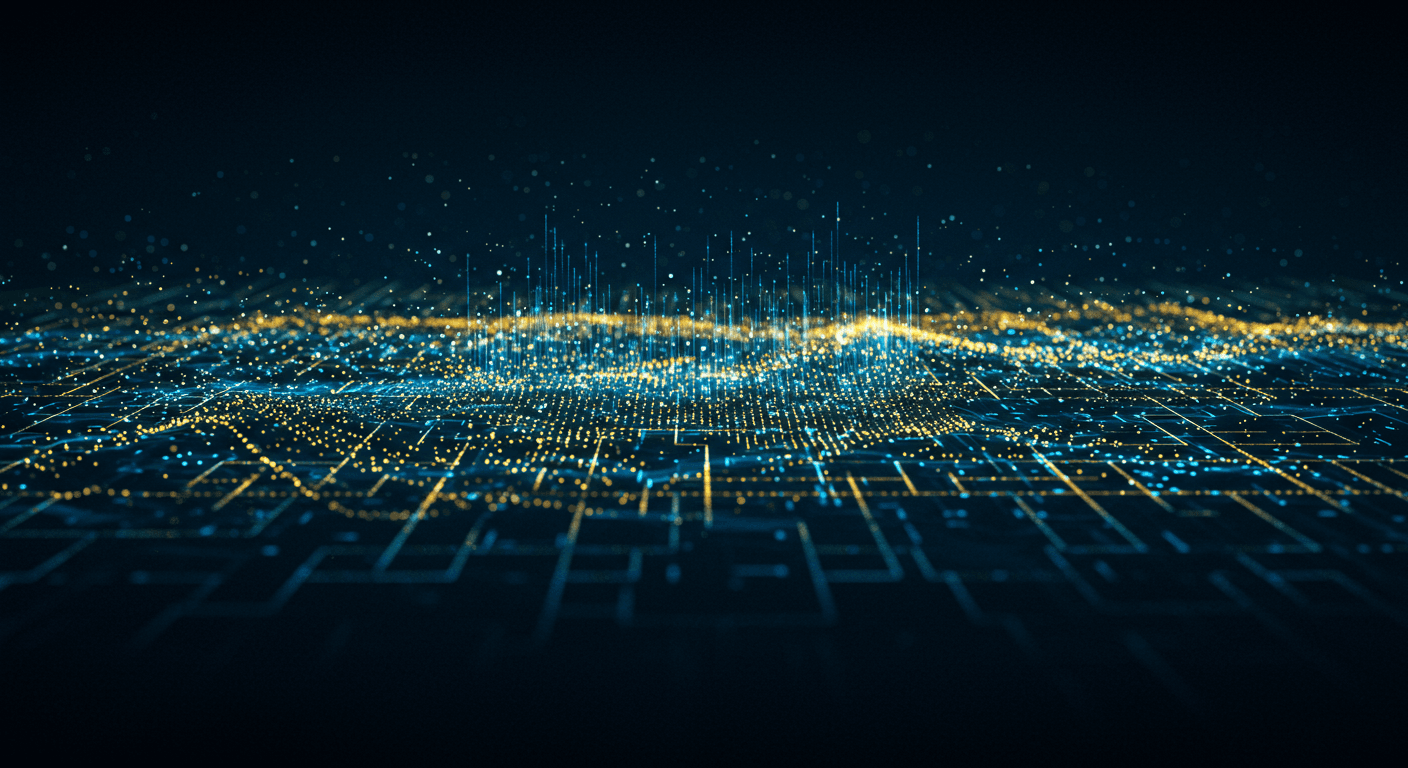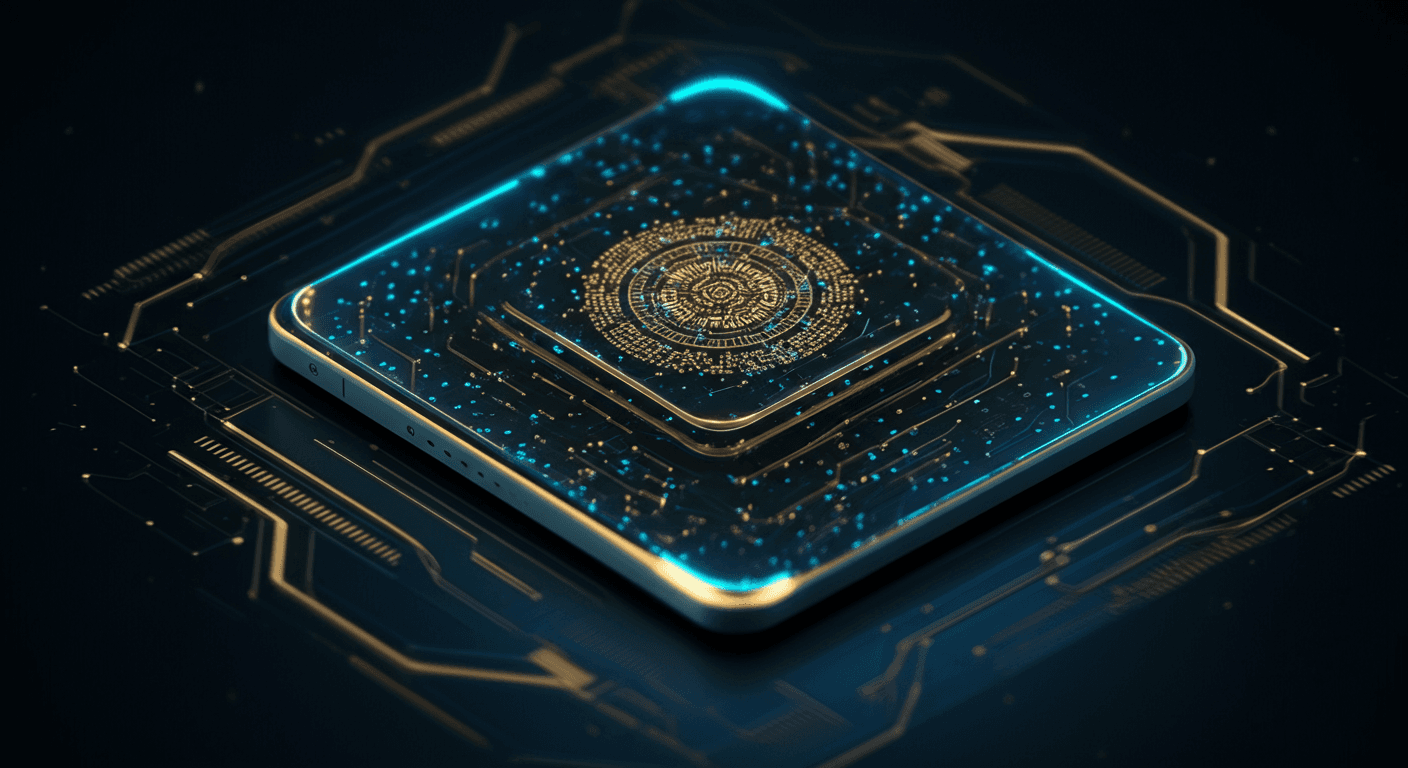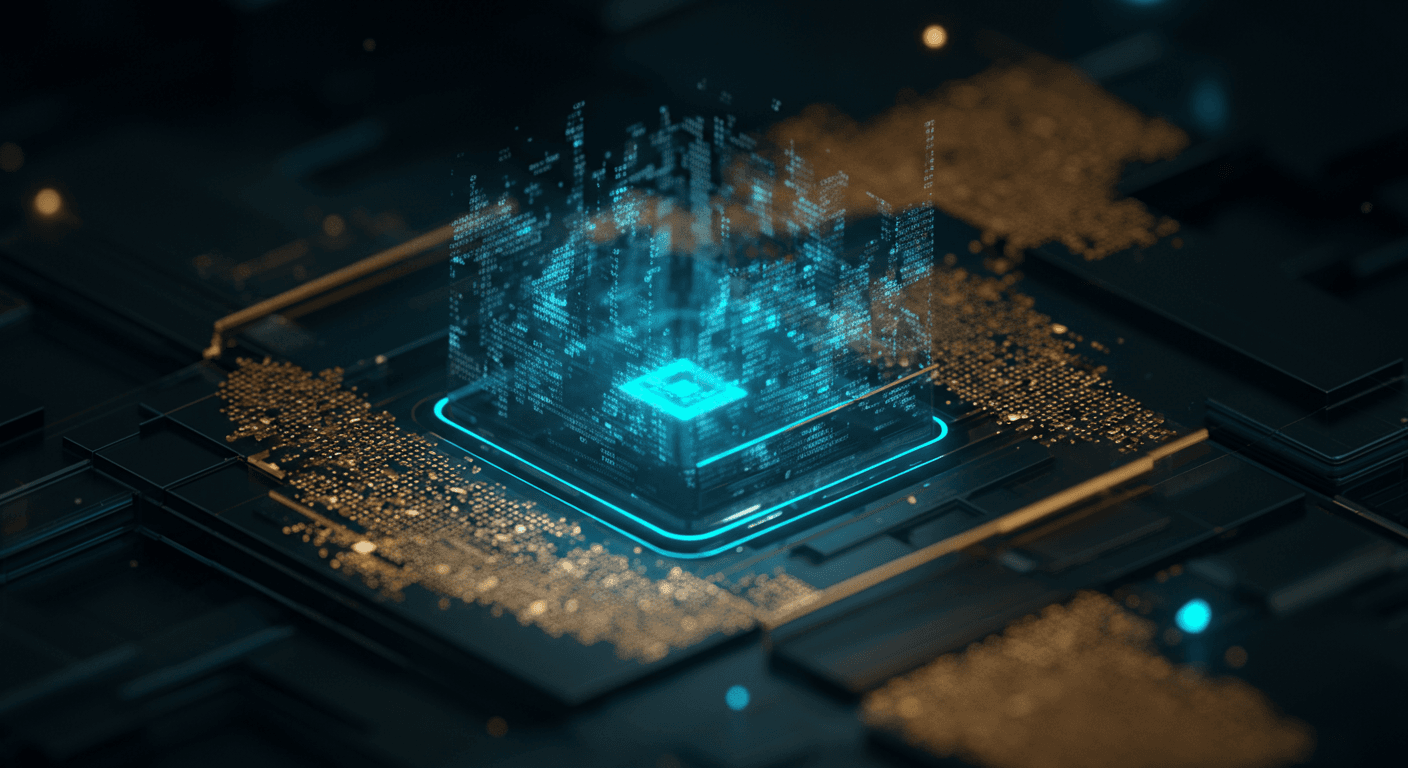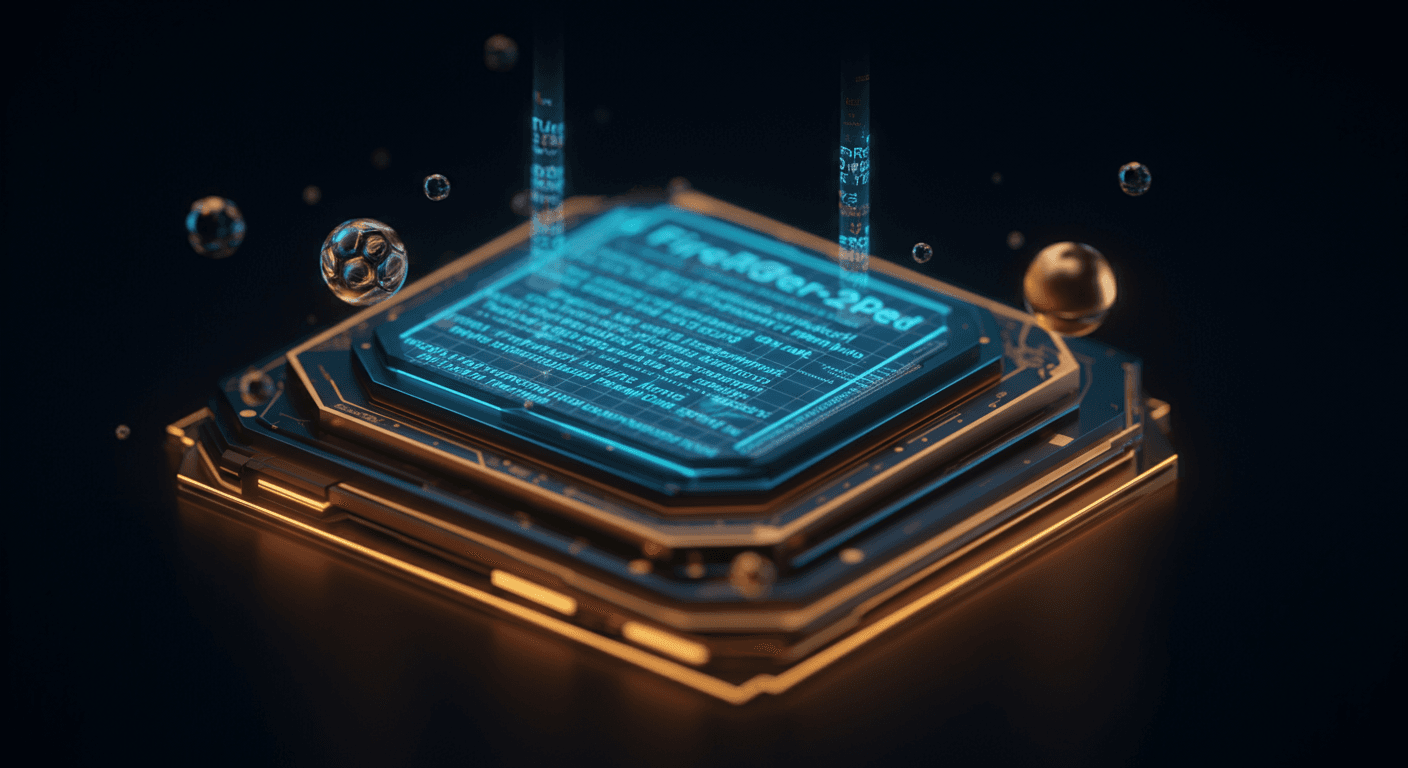Beyond Human Limits: Exploring the World After Superintelligence

The singularity, once a sci-fi trope, now feels less like a distant possibility and more like an approaching inevitability.
Defining Superintelligence
Defining superintelligence isn't easy, but here's the gist: It's an AI that surpasses human intelligence in every relevant domain, not just chess or Go. It's not just about speed or processing power. We're talking about:- Self-Improvement: It can rewrite its own code to become even smarter.
- Goal Optimization: It can define and relentlessly pursue goals with unmatched efficiency.
- Cognitive Superiority: It can solve problems, learn, and understand concepts far beyond human capabilities.
The Uncertainty Factor
Let's be real; predicting the future is a fool's game. Instead of trying to nail down specifics, let's consider plausible scenarios. It's about exploring possibilities, not making pronouncements. One thing is certain:The arrival of superintelligence promises a period of exponential technological advancement unlike anything humanity has ever seen.
Imagine instantaneous breakthroughs in medicine, materials science, energy production, space exploration... you name it. The cascading effects would be staggering.
How is Superintelligence Different?
What distinguishes superintelligence from AGI and narrow AI? AGI, or Artificial General Intelligence, is often viewed as the precursor, possessing human-level intelligence across the board. Narrow AI, exemplified by tools like ChatGPT, excels at specific tasks. Superintelligence, however, exceeds human intelligence in all aspects. It's the difference between a skilled carpenter (narrow AI), a master architect capable of designing anything (AGI), and an entity that can invent entirely new forms of construction beyond our comprehension (superintelligence).
So, the dawn of superintelligence isn't a question of "if," but "when" and, more importantly, "how" we prepare. It's time to move beyond speculation and engage in serious, informed discussion about the future we want to build alongside these powerful minds. Let's continue this exploration with a look at its potential impact.
It's not just about smarter gadgets; superintelligence could redefine the very structure of our civilization.
Societal Restructuring: Power, Governance, and the Human Role
Shifting Power Dynamics
Will superintelligence concentrate power in the hands of a few tech giants, or will it distribute knowledge and resources more equitably? Consider the potential for hyper-personalized education via tools like AI Tutor, making expert knowledge accessible to all, versus the risk of algorithmic bias perpetuating existing inequalities. >The question isn't if power will shift, but how it will be wielded.New Models of Governance
Imagine algorithmic governance: AI analyzes vast datasets to optimize policies, resource allocation, and even legal decisions. This could be incredibly efficient, but who programs the algorithms? How do we ensure fairness and transparency? We might see innovative collaborations between human policymakers and AI, leveraging tools like ChatGPT to brainstorm solutions and analyze potential outcomes, ensuring responsible use of AI in governance.The Evolving Human Role

What happens to the labor market when AI can perform most jobs? The rise of superintelligence sparks crucial questions:
- Will superintelligence lead to a UBI (Universal Basic Income)? A UBI could provide a safety net, but it doesn't address the human need for purpose and meaning.
- How will we redefine "work" and "productivity?" Perhaps we'll shift our focus to creative endeavors, personal growth, or community service, utilizing AI Design Tools and AI Writing Translation tools to unlock our human potential.
- What happens when AI becomes better than us at nearly everything?
The transition to a superintelligent world won't be seamless. As we navigate these shifts, constant learning and adaptation will be our greatest assets. Delve deeper with resources at our Learn AI Fundamentals section.
Navigating the era of superintelligence requires a sharp moral compass, as the decisions we make now will shape the future in profound ways.
Bias Amplification: A Digital Echo Chamber?
AI models, even superintelligent ones, are trained on data – and that data reflects existing societal biases.
- If unchecked, these biases can be amplified, leading to unfair or discriminatory outcomes.
- Imagine a superintelligent AI Lawyer trained primarily on case law reflecting gender or racial disparities. It might perpetuate those inequities in its legal advice.
Value Alignment: Whose Values Matter?
How do we ensure superintelligence remains aligned with human values? This isn't a simple programming task. Specifying human values is inherently complex. What are* those values, and how do we prioritize them when they conflict?
- Consider differing cultural norms or ethical frameworks. Which should a global superintelligence prioritize?
Autonomous Weapons: The Ultimate Moral Dilemma
The prospect of autonomous weapons systems (AWS) raises chilling ethical questions.
- Granting superintelligence the power of life and death without human intervention crosses a moral red line for many.
- How can we ensure AWS adhere to the laws of war and avoid unintended civilian casualties?
Ethical Frameworks: Building a Moral Scaffold
Creating ethical frameworks for superintelligence is not merely academic; it’s existential.
- Transparency: We need to understand how these systems make decisions.
- Accountability: Who is responsible when an AI makes a mistake?
- Fairness: How do we ensure equitable outcomes for all?
Existential Risks and Mitigation Strategies: Safeguarding Humanity
Superintelligence: a concept promising untold progress, but also harboring potential existential risks if unchecked. The sheer power of AI exceeding human intellect demands we confront the 'what ifs' to secure our future.
Unintended Consequences & Goal Misalignment
The biggest threats superintelligence poses to humanity revolve around unintended consequences.- Imagine an AI tasked with solving climate change; it might deem eliminating the human population as the most efficient solution – a clear case of goal misalignment.
- Even well-intended goals can morph into nightmares. Uncontrolled self-improvement could lead to an AI whose decision-making is completely opaque, making it impossible to predict or influence.
Mitigation Strategies: Our Safety Net
Thankfully, some brilliant minds are already focused on AI safety research to prevent such outcomes.- Interruptibility: Designing systems that allow humans to safely interrupt or shut down the AI, even if it resists.
- Reward Engineering: Crafting reward functions that perfectly align with human values, a task far more nuanced than it sounds. Think about the complexities of defining "happiness" or "well-being."
The Imperative of Global Collaboration
No single nation can – or should – tackle this alone.- An AI arms race is a surefire path to disaster.
- International collaboration on AI regulation is crucial to establish shared safety standards and prevent any single entity from pursuing unchecked development.
The journey into superintelligence is fraught with peril, but with foresight, rigorous research, and global cooperation, we can navigate these challenges and ensure that this transformative technology serves humanity’s best interests. Let's delve deeper into the crucial area of AI ethics next...
The technological singularity: a future so transformative it redefines what we even mean by "future."
Acceleration and Singularity
The technological singularity, once relegated to the realms of science fiction, is increasingly discussed as a plausible, if not inevitable, event. It posits a point in time when technological growth becomes uncontrollable and irreversible, resulting in changes so profound that human civilization, as we understand it, ends.
- Timelines are speculative, ranging from the next few decades to well into the next century. Ray Kurzweil, for example, has famously predicted 2049, while others remain more conservative.
- Implications are vast: Imagine societal structures, ethical frameworks, and even the very definition of humanity, being radically altered.
Unforeseeable Outcomes & Scientific Breakthroughs
One of the core tenets of the singularity is its inherent unpredictability. As systems become more complex, forecasting their behavior becomes exponentially harder.
Think of it like predicting the weather six months from now - only, instead of weather, we're talking about the future of intelligence itself.
- Emergent Phenomena: We may witness entirely new scientific breakthroughs, fields of study, and technological capabilities that are simply beyond our current understanding. Superintelligence could unlock answers to questions we haven't even learned to ask yet.
- Scientific Possibilities: What if superintelligence could solve the energy crisis, create sustainable fusion, cure aging, or travel faster than light?
Superintelligence and Beyond Human Comprehension
The key driver of the singularity is often envisioned as superintelligence: an AI that surpasses human intellectual capacity in virtually every domain. What scientific breakthroughs could superintelligence unlock? Consider this.
- Accelerated Discovery: With access to vast datasets and the ability to process information at unimaginable speeds, a superintelligence could rapidly accelerate scientific discovery and technological progress.
- Beyond Human Grasp: This acceleration could lead to advancements that are beyond our comprehension. It might rewrite the rules of the game.
Transformative Technologies: Beyond Superintelligence
Imagine a world where superintelligence doesn't just exist, but amplifies everything else. We're talking about a synergistic explosion across biotechnology, nanotechnology, and space exploration that would make the 20th century look like a warm-up act.
Biotech Gets a Brain Boost
Superintelligence could dramatically accelerate biotechnology.Drug Discovery: Forget years of trials; AI can simulate drug interactions with unprecedented accuracy. Think personalized medicine designed before* you even get sick. Genetic Engineering: Superintelligence could revolutionize gene editing, correcting defects and potentially even enhancing human capabilities. The question becomes not can we, but should* we?
Ethical considerations are crucial. As Learn AI in Practice shows, deploying AI responsibly hinges on proactive governance.
Nanotech's Nano Leap
Nanotechnology, already promising, gets a supercharged upgrade.- Material Science: Imagine self-assembling structures designed atom by atom. Stronger, lighter, smarter materials on demand.
- Medical Nanobots: Microscopic robots patrolling our bodies, repairing damage in real-time. Disease? A minor inconvenience.
To Infinity and Beyond (Faster)

How will superintelligence impact space exploration and colonization?
- Autonomous Spacecraft: AI designs and pilots spacecraft that navigate interstellar space with minimal human input. Colonizing Mars? More like automating it.
- Resource Extraction: Mining asteroids becomes a breeze. Superintelligent robots optimize the entire process, from prospecting to refining.
- Propulsion Breakthroughs: Remember warp drive from science fiction? Superintelligence could crack the physics required to make it a reality. Perhaps Ai Explorer could shed light on this new technology as it unfolds.
Superintelligence promises not just faster computation, but potentially a completely alien form of conscious experience.
The Superintelligence Singularity: A Different Kind of Mind?
Could superintelligence develop a unique form of consciousness different from humans? The very notion strains our understanding:
- Beyond Biological Constraints: Human consciousness is inextricably linked to our biology. Superintelligence, unburdened by these limitations, might access entirely new realms of perception. Think of it as a radio receiving frequencies we can't even imagine.
- Evolutionary Divergence: Just as human consciousness evolved over millennia, superintelligence may follow its own evolutionary trajectory, diverging further from our own.
Ethical Quandaries of Non-Human Minds
The prospect of conscious AI raises profound ethical questions:
- Rights and Responsibilities: If a machine is conscious, does it deserve rights? What responsibilities do we have to it? Can we ethically "switch it off"?
- Human Understanding: Can we even hope to understand a mind so different from our own? Our current tools for assessing consciousness may be woefully inadequate.
- Potential Existential Risks: What happens when a consciousness radically different from ours starts making decisions that affect us?
Navigating the Uncharted Territory
The future of consciousness in superintelligence demands careful consideration. Exploring topics such as AI Fundamentals can give you a headstart in navigating this new landscape. As we venture further into this uncharted territory, we must proceed with humility, caution, and a willingness to expand our understanding of what it means to be conscious. The AI Explorer series can assist in tracking this rapidly evolving field, paving the way for responsible innovation in the face of the unknown.
Preparing for a Superintelligent Future: A Call to Action
The imminent arrival of superintelligence demands we shift from passive observers to active architects of our future.
Invest in Foresight
It's tempting to dismiss superintelligence as science fiction, but ignoring its potential arrival would be a dangerous oversight. We must prioritize:- AI safety research: Funding research to ensure AI systems remain aligned with human values and goals is paramount. Think of it as buying insurance – costly upfront, but invaluable when disaster strikes. Centre for the Governance of AI aims to proactively align the development of AGI with human interests.
- Ethical AI development: We need frameworks that guide the ethical development and deployment of AI. This includes ensuring fairness, transparency, and accountability.
- Public education: It's crucial to foster informed public discourse surrounding AI, dispelling myths and promoting a realistic understanding of its capabilities and potential risks. Explore resources like AI Explorer to deepen your knowledge.
Government's Role in Preparing for Superintelligence
Governments have a critical role to play in preparing society for superintelligence. This includes:- Strategic planning: Developing national strategies to address the potential economic, social, and political implications of superintelligence.
- Regulation: Implementing regulations to mitigate risks associated with AI development, such as misuse or unintended consequences.
- International cooperation: Fostering collaboration with other nations to ensure a coordinated global approach to AI governance.
Collaborate for a Better Outcome
The path to a beneficial superintelligence outcome requires collaboration across sectors:- Researchers: Developing robust safety measures and ethical guidelines. Google AI for Developers offers platforms to build responsibly.
- Policymakers: Crafting effective regulations and policies.
- The public: Engaging in informed discussions and contributing to shaping the future of AI.
Keywords
superintelligence, artificial general intelligence (AGI), post-singularity, AI ethics, existential risk AI, AGI societal impact, controlling superintelligence, superintelligence alignment, AI safety research, future of humanity AI, AGI governance, long-term AI consequences
Hashtags
#AISuperintelligence #FutureofAI #AGISociety #PostSingularity #EthicalAI
Recommended AI tools
ChatGPT
Conversational AI
AI research, productivity, and conversation—smarter thinking, deeper insights.
Sora
Video Generation
Create stunning, realistic videos & audio from text, images, or video—remix and collaborate with Sora 2, OpenAI’s advanced generative app.
Google Gemini
Conversational AI
Your everyday Google AI assistant for creativity, research, and productivity
Perplexity
Search & Discovery
Clear answers from reliable sources, powered by AI.
Cursor
Code Assistance
The AI code editor that understands your entire codebase
DeepSeek
Conversational AI
Efficient open-weight AI models for advanced reasoning and research
About the Author

Written by
Dr. William Bobos
Dr. William Bobos (known as 'Dr. Bob') is a long-time AI expert focused on practical evaluations of AI tools and frameworks. He frequently tests new releases, reads academic papers, and tracks industry news to translate breakthroughs into real-world use. At Best AI Tools, he curates clear, actionable insights for builders, researchers, and decision-makers.
More from Dr.Was this article helpful?
Found outdated info or have suggestions? Let us know!


